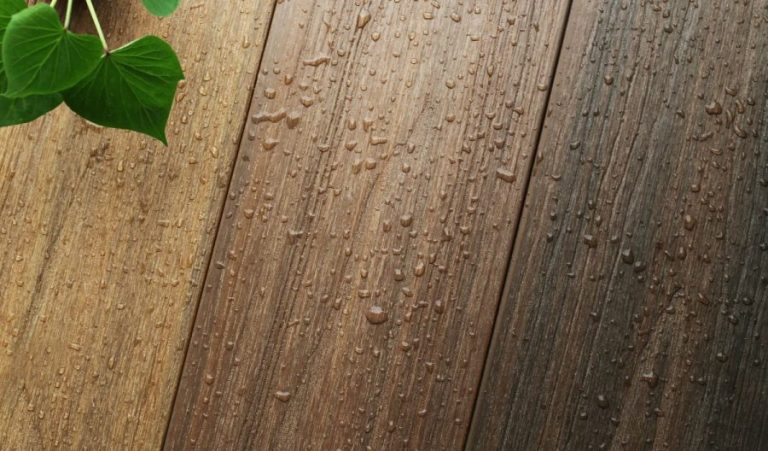Composite Decking Vs. Wood
- Written by NewsCo

Are you looking to install a deck? If so, the challenge you will find is choosing the material for your decking. You have two common options for your deck: wood and wood-plastic composites.
Many homeowners are torn between composite and natural timber decking. There are many factors that can influence your decision, such as cost or the look of the finished product.
When installing, you can either hire a contractor or do it yourself. Either way, this article is for you. We shall try to compare wood and composite decking, to help you to make an informed decision.
To have a better understanding of composite decking vs. wood, let's dive into the pros and cons of these materials.
Looks
There is no denying that natural wood looks beautiful.
Earlier composite decking used to look artificial but modern composites have a variable variegated appearance. Higher quality brands also feature a randomized embossed grain pattern that makes the boards look different from one another and more natural.
You can find composites that closely resemble natural wood decking boards from this composite decking supplier in Perth.
Moisture & Maintenance
Moisture presents a significant challenge to natural wood decking. You have to maintain the timber boards properly to extend their life. This requires annual inspections, as well as bi-annual sanding, oiling and painting to seal the boards and protect them from moisture.
Composites, on the other hand, are easy to maintain; you only have to sweep or wash them to ensure that the boards look good.
Also, composites do not fade, rot or warp.
Workability
Both materials are easy to cut. You can also fasten them easily with common tools while installing them.
Composite timber is particularly easy to work with because it is lightweight and can be machined into any shape.
Natural timber boards can be harder to work with because wood cannot be shaped easily.
Composite timber doesn’t rot like natural timber, so it will last a lot longer.
Insect Damages
Unlike wood, composite timber is resistant to termites and other pests.
If you opt for timber, you’ll need to protect it from wood-destroying insects and termites with regular treatment.
Price
Price is a significant factor to consider when selecting your decking material.
Wood decking tends to be more affordable up-front. Typically, purchasing wood decking is cheaper than composites. However, this only applies to the initial costs.
Composite decking will often pay itself after two to three years, due to the savings on maintenance and repairs.
Additionally, the price will vary depending on the species of natural wood, or the brand of composite.
Splinters
When it comes to splintering, all natural wood decking is prone to splintering. On the other hand, composite decking won't splinter. Composites are made from small wood fibers that are encased in plastics.
Composite decking is popular because it doesn’t carry risks to pets and children who walk barefoot - particularly those with sensitive feet.
Conclusion
Think about which material would best suit you. Consider not only which material you prefer the appearance of but also the varying costs and maintenance requirements.
The composite you choose will depend on the manufacturer. Be sure to purchase it from a reputable and trustworthy supplier of high-quality composite decking.





